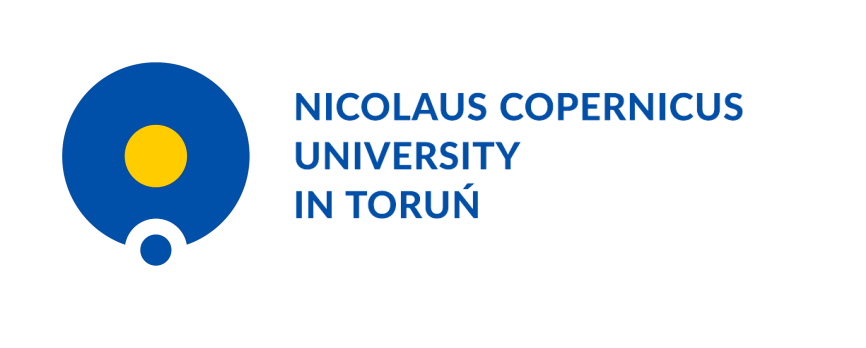Chronic Diseases
Chronic diseases. Team leader: prof. dr hab. Justyna Rogalska
Chronic diseases are one of the most severe health problems faced by the populations of developed countries. So far, these diseases have been mostly incurable. For this reason, extensive research needs to be conducted to clarify their pathomechanisms. The results of this research may lead to the development of effective prevention and treatment methods in the future.
The Chronic Diseases Research Group consists of six co-existing teams. Their leaders are:
- prof. dr hab. Justyna Rogalska – neurobiologist, physiologist;
- dr hab. Anna Brożyna, prof. UMK – medical biologist;
- dr hab. Sylwia Wrotek, prof. UMK – immunologist;
- prof. dr hab. Alina Woźniak – medical biologist;
- dr hab. Mariusz Skowroński, prof. UMK – doctor of veterinary medicine, physiologist;
- dr hab. Maciej Harat, prof. UMK – medical doctor, oncologist radiotherapist.
In collaboration with foreign and domestic partners, we investigate a variety of chronic diseases, including cancer, arthritis, neurodegenerative diseases, hepatitis, and pigmentation disorders. We focus on examining a wide range of aspects related to chronic diseases – from risk factors (e.g. hypoxia, electromagnetic field, dysbiosis), through diagnostics (identification of new markers, improvement of imaging analysis), to treatment (innovative regenerative therapies, bioactive substances of natural origin). We apply various laboratory methods in our research, such as molecular techniques (gene silencing, DNA sequencing, qRT-PCR, CRISPR, Western Blot, ELISA, Bio-Plex Multiplex immunoassays, flow cytometry), biochemical analyses and spectrophotochemical techniques; cell culture techniques (including 2D and 3D cell culture models); experimental techniques on animals (animal surgery, behavioural tests, body temperature and motor activity analysis, electrophysiology, blood analysis); microscopy (confocal, fluorescent, optical, TEM); imaging techniques such as PET/CT, PET/MR. Our research involves working on both human and animal material. The therapeutic procedures performed include surgery, radiotherapy, pharmacotherapy, biological therapies (microbiological and stem cells).
We test our research hypotheses by applying different approaches: (a) in vivo – animal models and livestock, (b) ex vivo – cells isolated from patients and animals, (c) in vitro – including 2D and 3D cell culture models, (d) in situ – human and animal tissues, (e) in silico – databases and (f) cohort and human studies.
Prof. dr hab. Justyna Rogalska – a staff member of the Faculty of Biological and Veterinary Sciences, Nicolaus Copernicus University. She heads the Department of Animal Physiology and Neurobiology. She was born in 1971 in Grudziądz. She graduated from the then Faculty of Biology and Earth Sciences, Nicolaus Copernicus University in Toruń in 1995 and completed postgraduate studies at the Faculty of Economic Sciences and Management, Nicolaus Copernicus University: Finance Management and Marketing in 1996. She started PhD studies at the Faculty of Biology and Earth Sciences, Nicolaus Copernicus University in 1996. She defended her doctoral dissertation entitled “Anapirexia as a defence against the effects of perinatal hypoxia in rats” written under the supervision of Prof. Michał Caputa in 2000 and started working in the Department of Animal Physiology. She did research internships in the Institute of Neurobiology, Slovak Academy of Sciences in Košice, Slovak Republic and the Endocrinology Unit, Centre for Cardiovascular Science, the Queen’s Medical Research in Edinburgh, University of Edinburgh, UK. She was awarded the degree of doctor habilitated in 2011 for the thesis entitled “The role of body temperature and hyperferrmia during simulated childbirth hypoxia in the etiology of abnormal stress reactions in the rat life cycle.” She got employed in the position of associate professor in 2016 and became Head of the Department of Animal Physiology (since 2019 – Department of Animal Physiology and Neurobiology) in 2017. She held the position of Vice-Dean of the Faculty of Biology and Environmental Protection between 2012-2016 and has been Vice-Director of the Institute of Biology at the Faculty of Biological and Veterinary Sciences since 2019. She has been an expert of the Polish Accreditation Committee (section for science and natural sciences, discipline: biological sciences) since 2017. Prof. Rogalska’s research interests address the mechanisms of defence against hypoxia in new-born mammals (antioxidant defense, cerebral plasticity). In her research, she focuses on the correlation between the perinatal body temperature during exposure to hypoxia and subsequent developmental disorders. Prof. Rogalska led research projects, including those funded by the National Science Centre. She has received the Award of the Rector of the Nicolaus Copernicus University for her achievements in scientific and research work five times. She is a member of the Polish Ethological Society, the Polish Nervous System Research Society and the Federation of European Neuroscience Societies. She is a reviewer of research proposals in competitions organized by the Netherlands Organisation for Health Research and Development, the Slovak Research and Development Agency, and the Czech Science Foundation. Prof. Rogalska’s didactic activity is worth noting. As a member of the Faculty Subcommittee on Learning Outcomes, she has worked on new study programmes for the fields of study: biology (subcommittee chair), medical chemistry, sport and wellness. She gives specialist lectures on neurobiology, stress physiology, and models of animal mental and neurodegenerative diseases. Currently, her new research area concerns the long-term influence of the electromagnetic field on the nervous system. She is the principal investigator of the National Science Centre grant entitled “New view on the impact of the electromagnetic field of low frequency (50 Hz) on stress responses and brain plasticity – hormesis effect.“


 ul. Gagarina 7, 87-100 Toruń
ul. Gagarina 7, 87-100 Toruń